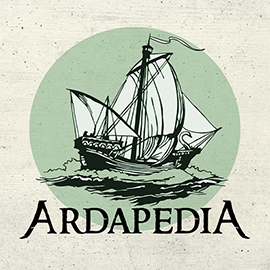The Battle of the Eastern Field: Unterschied zwischen den Versionen
| Zeile 5: | Zeile 5: | ||
==Version der Erstveröffentlichung== | ==Version der Erstveröffentlichung== | ||
Ho, rattles sound your warnote! | Ho, rattles sound your warnote!<br> | ||
Ho, trumpets loudly bray! | Ho, trumpets loudly bray!<br> | ||
The clans will strive and gory writhe | The clans will strive and gory writhe<br> | ||
Upon the field to-day. | Upon the field to-day.<br> | ||
To-day the walls and blackboards | To-day the walls and blackboards<br> | ||
Are hung with flaunting script, | Are hung with flaunting script,<br> | ||
From Atlas on the staircase | From Atlas on the staircase<br> | ||
To Bogey’s darkling crypt. | To Bogey’s darkling crypt.<br> | ||
Each knight is robed in scarlet, | Each knight is robed in scarlet,<br> | ||
Or clad in olive green; | Or clad in olive green;<br> | ||
A gallant crest upon each breast | A gallant crest upon each breast<br> | ||
Is proudly heaving seen. | Is proudly heaving seen.<br> | ||
While flows our Yellow River, | While flows our Yellow River,<br> | ||
While stands the great Pavil, | While stands the great Pavil,<br> | ||
That Thursday in the Lenten Term | That Thursday in the Lenten Term<br> | ||
Shall be a beanfest still. | Shall be a beanfest still. | ||
==Quellen== | ==Quellen== | ||
Version vom 30. Mai 2023, 13:55 Uhr
The Battle of the Eastern Field ist das erste veröffentlichte Gedicht von J.R.R. Tolkien. Es wurde 1911 in der King Edward's School Chronicle auf den Seiten 22-26 abgedruckt. Das Gedicht ist eine Parodie Thomas Babbington Macaulay's auf die Heldengeschichte The Lays of Ancient Rome The Lays of Ancient Rome.
1978 wurde das Gedicht erneut veröffentlicht.
Version der Erstveröffentlichung
Ho, rattles sound your warnote!
Ho, trumpets loudly bray!
The clans will strive and gory writhe
Upon the field to-day.
To-day the walls and blackboards
Are hung with flaunting script,
From Atlas on the staircase
To Bogey’s darkling crypt.
Each knight is robed in scarlet,
Or clad in olive green;
A gallant crest upon each breast
Is proudly heaving seen.
While flows our Yellow River,
While stands the great Pavil,
That Thursday in the Lenten Term
Shall be a beanfest still.

